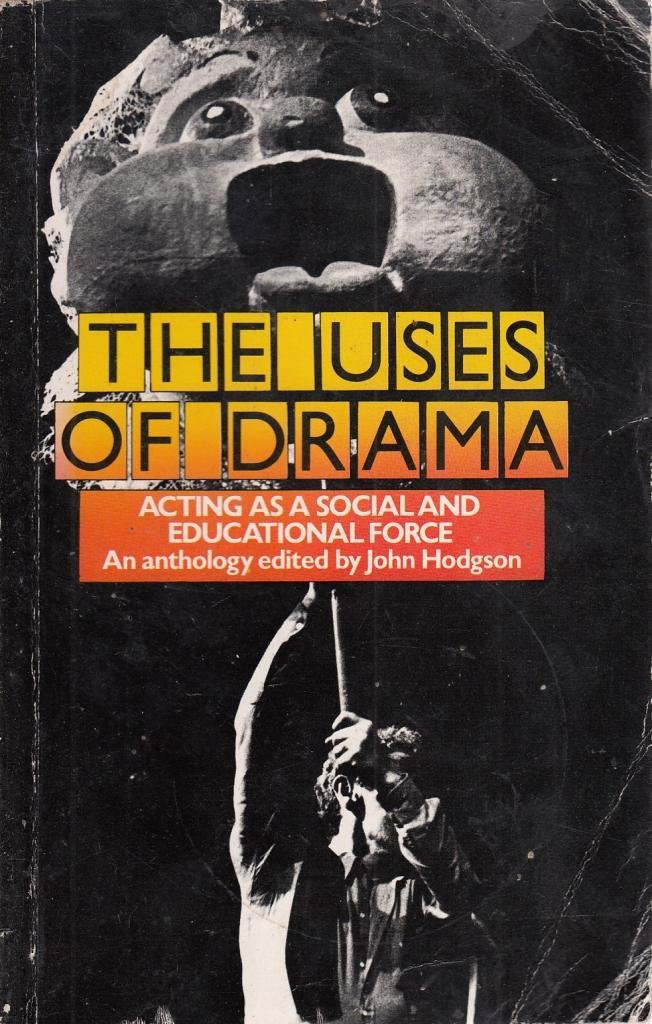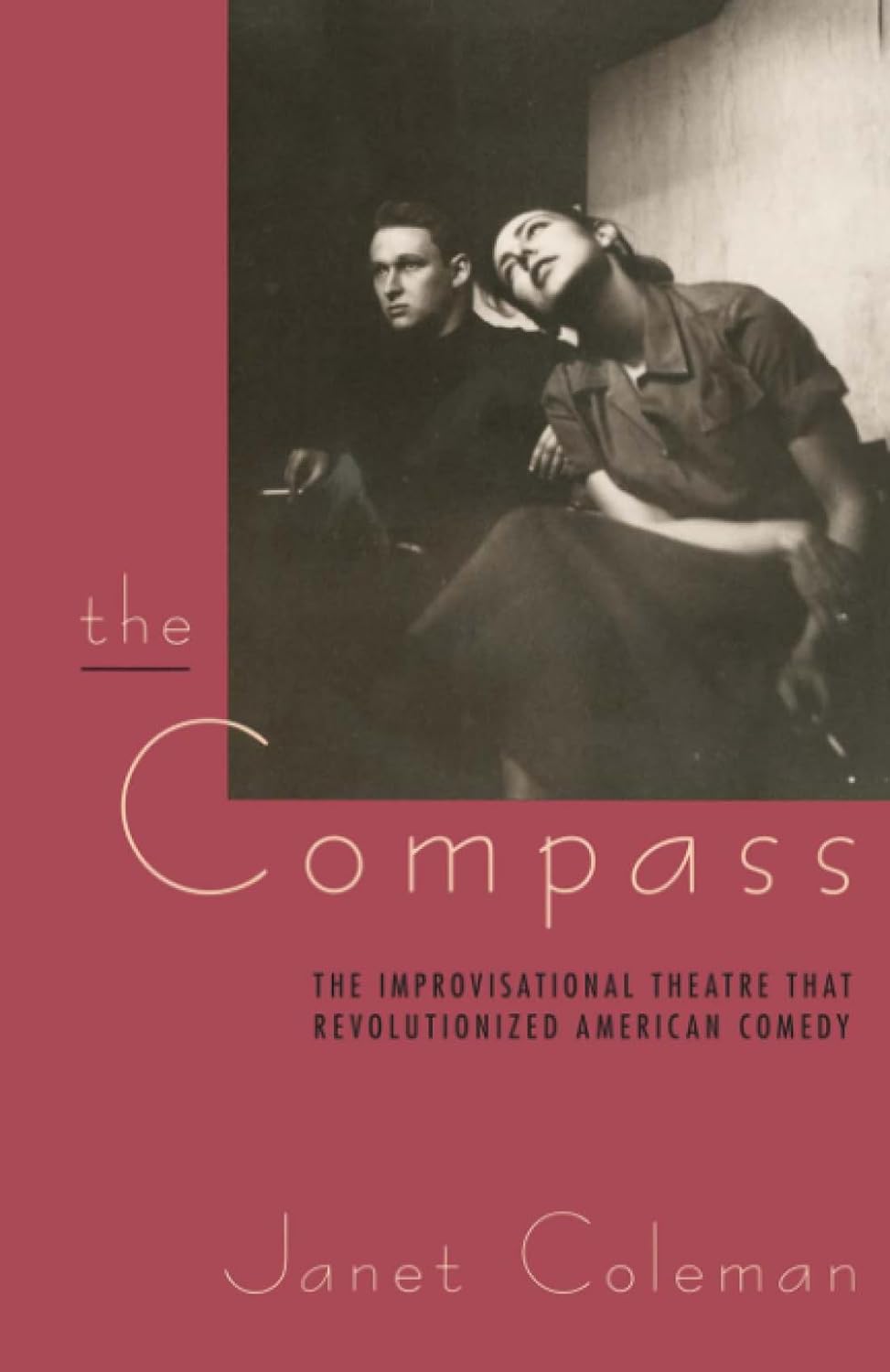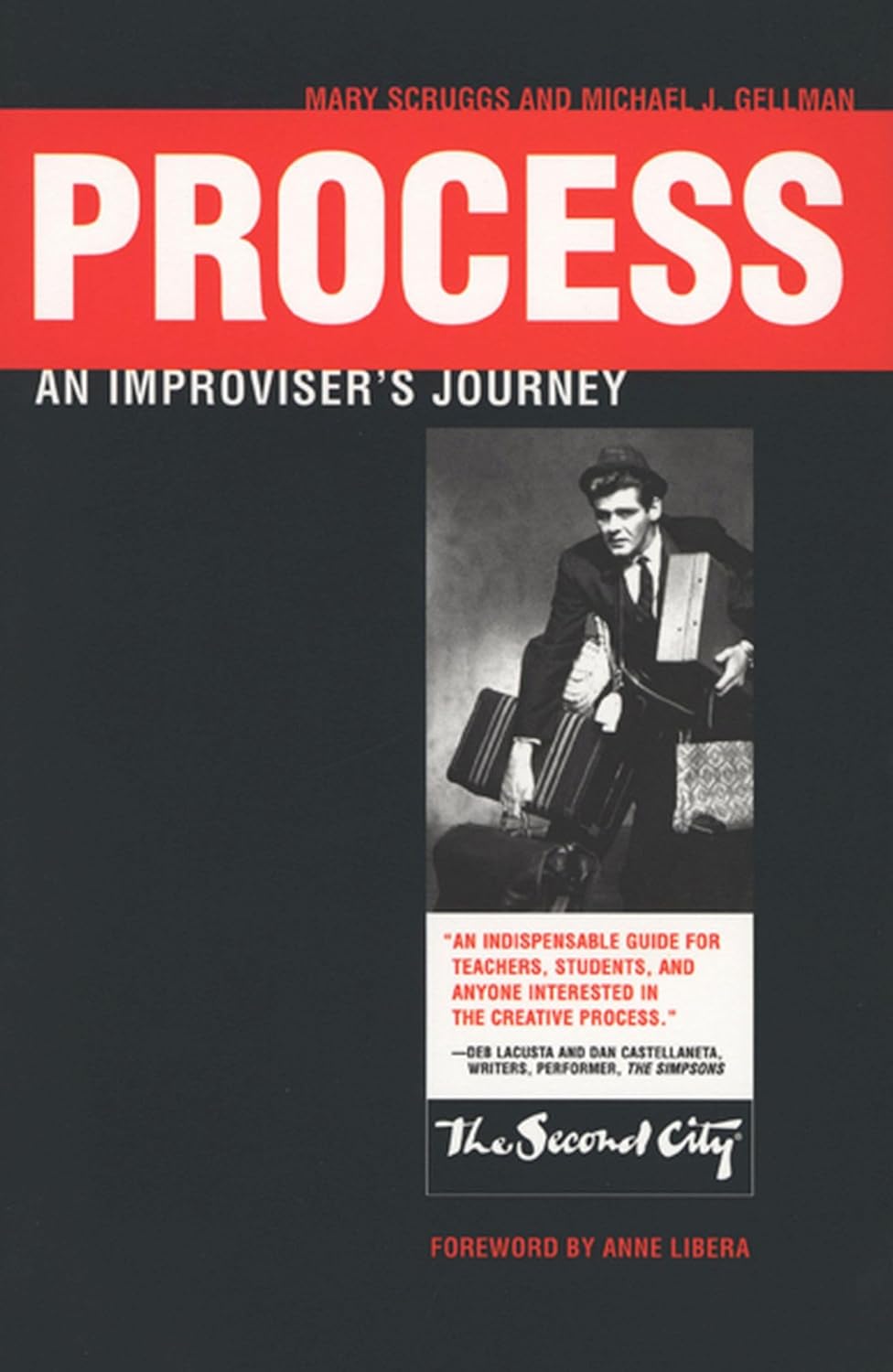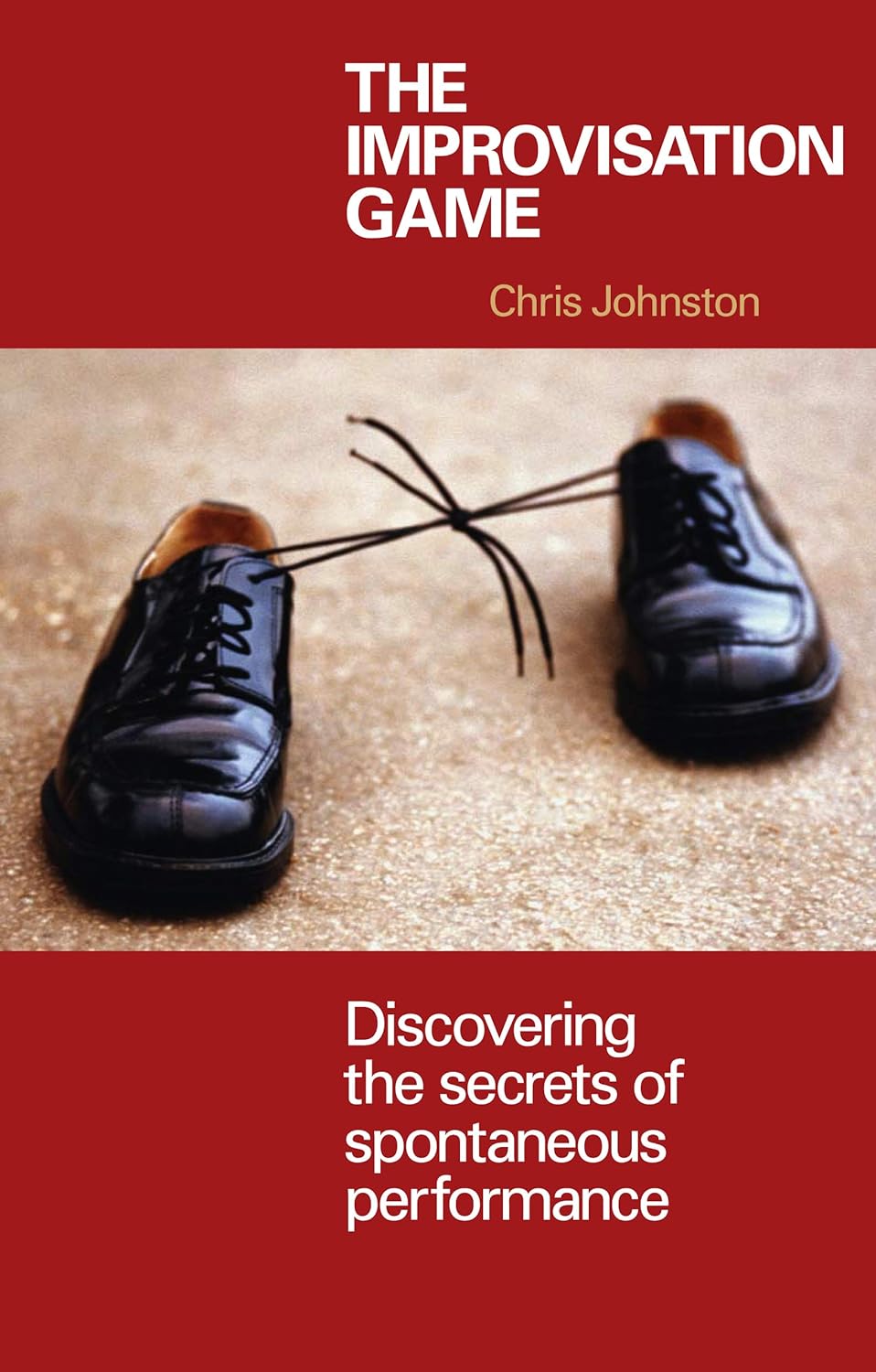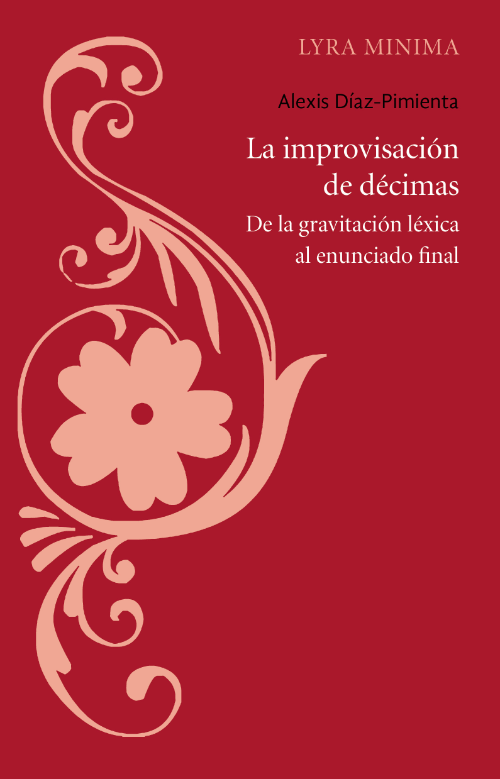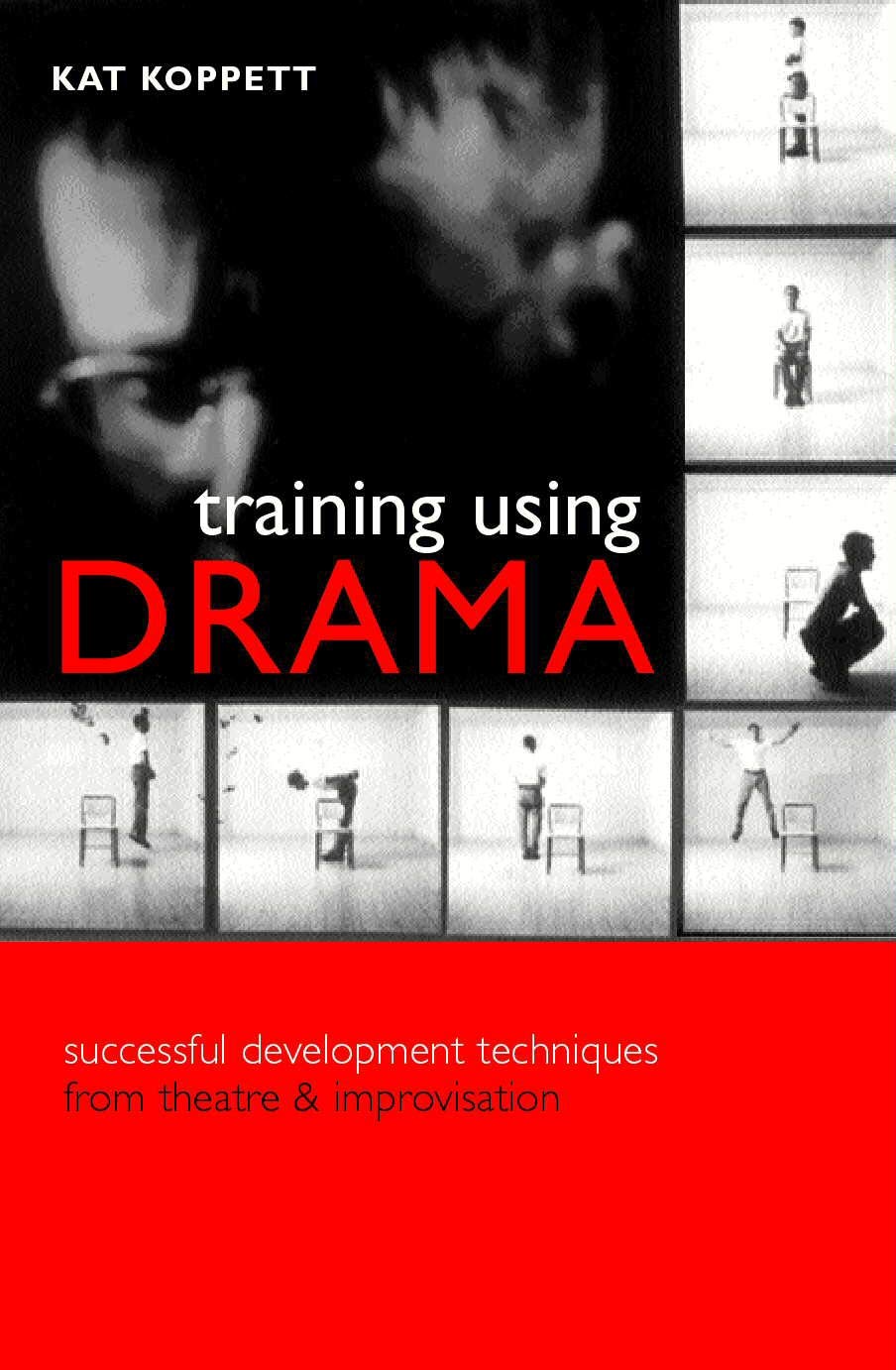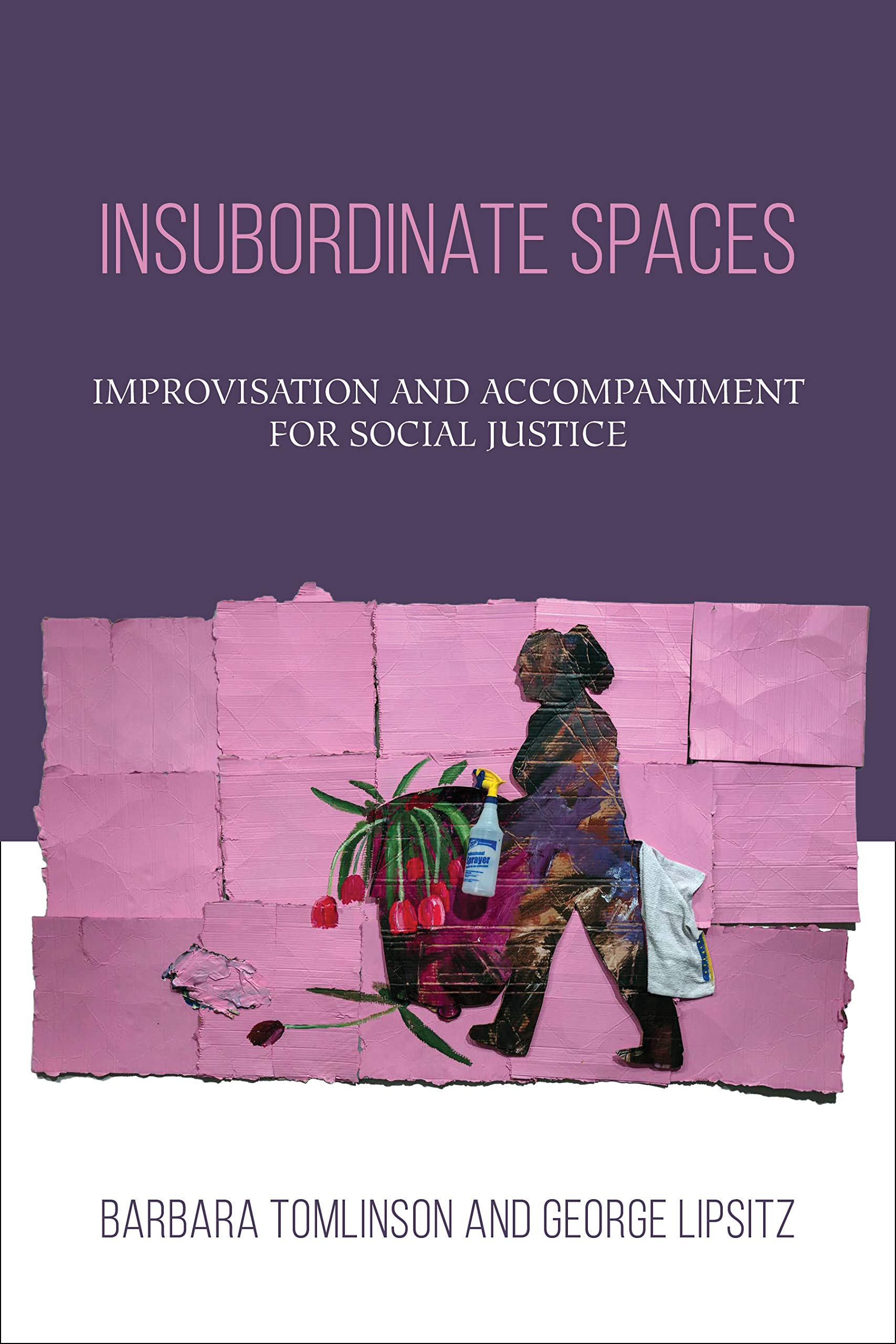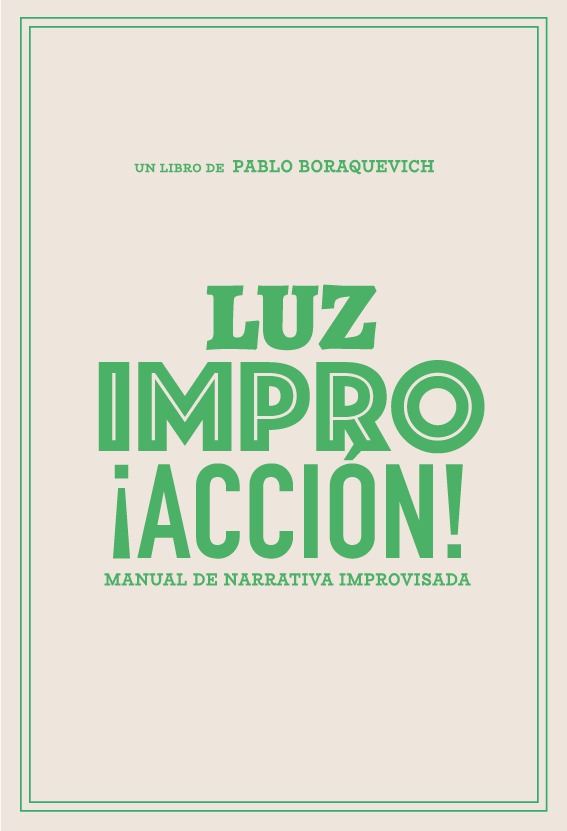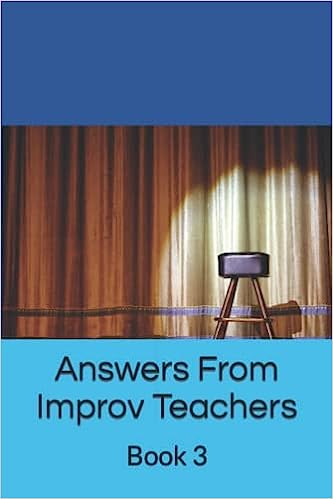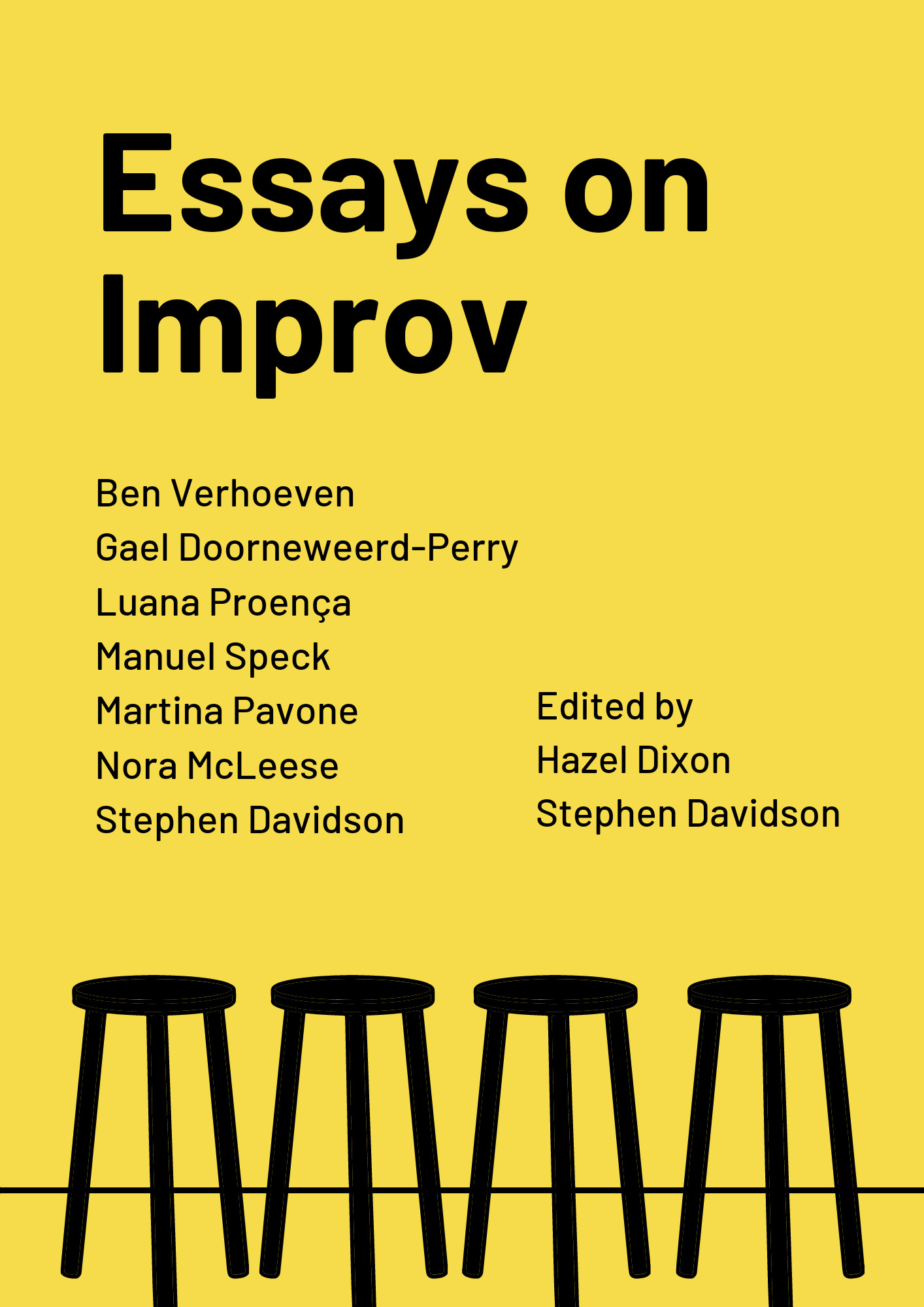The Uses of Drama : Acting As a Social and Educational Force: An Anthology Aristotle, Barrault, Brecht, Chambers, Laban, Mariwitz, Stanislavski… this book contains personal selection of writings on the theatre, ranging in time from Aristotle to Brook. Included are such aspects as drama as therapy, drama in education and the search for new drama.
Books
Janet Coleman brilliantly recreates the time, the place, the personalities, and the neurotic magic whereby the Compass made theater history in America. The Compass began in a storefront theater near the University of Chicago campus in the summer of 1955 and lasted only a few years before its players—including David Shepherd, Paul Sills, Elaine May, Mike Nichols, Barbara Harris, and Shelley Berman—moved on. Out of this group was born a new form: improvisational theater and a radically new kind of comedian. “They did not plan to be funny or to change the course of comedy,” writes Coleman. “But that is what happened.”
Process: An Improviser’s Journey Process: An Improviser’s Journey is an invaluable resource for mastering improv. Author, teacher, and improviser Michael Gellman was given a mission by famed improv coach Del Close: “[T]o create improvised one-act plays of literary quality from scratch.” Already steeped in the world of improvisation, he took it upon himself to do this, in the form of a class for other improvisers in which they would build the skills necessary to execute such a seemingly tall order. Scruggs and Gellman’s book, modeled after Stanislavski’s timeless An Actor Prepares, follows a fictional young actor taking Gellman’s real-life class. Scruggs and Gellman introduce readers to Geoff, who has just moved to Chicago to pursue acting. He undergoes the standard trials of audition and rejection before he takes the advice of a fellow actor and turns to improv classes at Second City. At first, Geoff thinks improvisation is about laughs and loosening up, but he soon learns that it is a powerful tool as well as an end in itself. Through Geoff’s eyes, the book introduces readers to key tenets of improvisation: concentration, visualization, focus, object work, being in the moment, and the crucial “yes, and.” His experiences with the…
The Improvisation Game: Discovering the Secrets of Spontaneous Performance Packed with exercises and practical techniques, The Improvisation Game explores how improvisation can be used both to create performance and as an end in itself. It reveals the techniques, structures, and methods used by key practitioners in the field of improvised drama, music, and dance—among them are Keith Johnstone, Max Stafford-Clark, Phelim McDermott, Tim Etchells, John Wright, and Robert Lepage.
With academic erudition and supported by extensive experience as a repentista, the author proposes a study of the improvisation of the décimas following a method that allows us to appreciate both the beauty and the poetic complexity in this stanza frequently used in popular Ibero-American poetry. As Díaz-Pimienta points out, improvisation is “an art so complex and so unknown that it should be tempting to researchers.” This volume is an original and necessary proposal to address new studies of the improvised décima, as well as an invitation to the reader to discover poetic findings in ancient forms that continue to be sung throughout the pan-Hispanic territories, from the expert hand of a born researcher.
Training Using Drama: Successful Development Techniques from Theatre and Improvisation The use of training techniques originally developed for theatre and improvization within the workplace has increased enormously and the effectiveness of the approach is finding many enthusiastic followers. Sometimes actors themselves are brought into an organization to act as catalysts within a training/role-play setting, but increasingly, trainers use the techniques themselves. This guide to using development techniques from theatre and improvization shows how anyone can make use of them. Complete with 50 detailed activities, the book shows how to use storytelling, role-plays and coaching to improve creativity, leadership, teamwork and personal development.
Improvisation and Accompaniment for Social Justice How contemporary activists, artists, and academics oppose oppressive structures of power and unjust social relations to create a more decent and democratic future Insubordinate spaces are places of possibility, products of acts of accompaniment and improvisation that deepen capacities for democratic social change. Barbara Tomlinson and George Lipsitz’s Insubordinate Spaces explores the challenges facing people committed to social justice in an era when social institutions have increasingly been reconfigured to conform to the imperatives of a market society. In their book, the authors argue that education, the arts, and activism are key terrains of political and ideological conflict. They explore and analyze exemplary projects responding to current social justice issues and crises, from the Idle No More movement launched by Indigenous people in Canada to the performance art of Chingo Bling, Fandango convenings, the installation art of Ramiro Gomez, and the mass protests proclaiming “Black Lives Matter” in Ferguson, MO. Tomlinson and Lipsitz draw on key concepts from struggles to advance ideas about reciprocal recognition and co-creation as components in the construction of new egalitarian and democratic social relations, practices, and institutions. Insubordinate Spaces: Improvisation and Accompaniment for Social Justice is from the Insubordinate…
This book is a practical theoretical guide for improvisers, storytellers and artists in general to learn to tell better stories. It combines knowledge of cinema and theater to, through examples of well-known classes and films, provide valuable information about narrative structures, types of conflict, characters and their function and much more. It is a self-publishing, you can obtain it contacting the author directly: Pablo Boraquevich (@boraimpro) This book can be obtained in digital format for less than €10
We’re at it again with a THIRD BOOK! We asked popular improv teachers and performers from around the world their advice. We felt like it was especially poingant to discuss improv in the times of Covid and Lockdown. We published all their beuaitulf answers on the improv community here! David Escobedo gathered and published this book. He has been coaching and performing improv since 1994, and who runs the Improv Boost.
The SIN is a network of international improvisers in Europe that meets twice per year. The network aims to create an environment of support and collaboration across borders. It is our ambition to explore the art of improvisational theatre together as well as sharing advice and good practices on all organisation and production around improv. The ultimate goal is to boost improvisational theatre in local communities throughout Europe by working together and learning from each other within the international community. This book is a snapshot of different insights, pedagogies, and good practice from some of the members of our group. We’re offering them to the wider community as a window into the thought and function of our group, and to further our aims of boosting improv in theatres around Europe. As teachers and theatre directors, we can all feel a bit isolated at times. The SIN as a group, and this book as an offering, are efforts to bring a feeling of community and the free exchange of ideas that help make this art form the beautiful thing that it is. We hope that everyone reading it feels supported, inspired, and perhaps even provoked. Contents: Improvisation and the Scientific Method…
